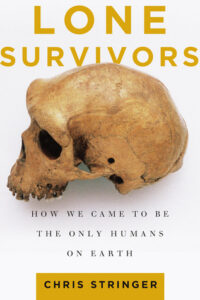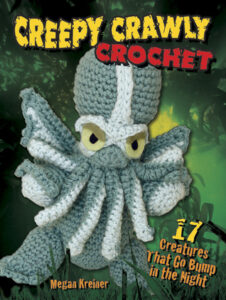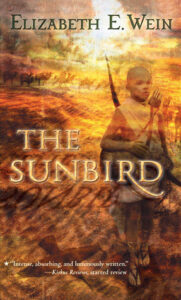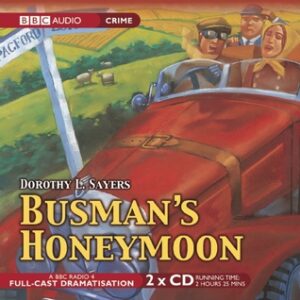Posted November 21, 2016 by Nicky in Reviews / 0 Comments
 X-Men: Return to Weapon X, Mark Millar, Adam Kubert
X-Men: Return to Weapon X, Mark Millar, Adam Kubert
I am still not sold on this — and Sabretooth is just a Wolverine knock-off, so I don’t think there’s a single scrap of tension in the scenes with him. Actually, in general the blurbs on the backs of these don’t quite seem to match the reality. Logan doesn’t “go it alone against the shadow-ops organisation that transformed him into one of the world’s most lethal killing machines”, and Sabretooth is not “a predator every bit [Wolverine’s] equal”.
I remember liking Rogue in some TV series or other, but there’s not much to get hold of here. And ugh, that phonetic accent. But Nightcrawler’s kind of cool.
So yeah, still not sold on this, and will someone tell the artist that breasts just don’t look like that? Like, they’re not shiny globes with one point of attachment to the female body. In some of these panels, it just looks like Jean and Ororo are holding pairs of melons in front of them via Jean’s telekinesis.
Rating: 2/5
Tags: book reviews, books, comics, Marvel
Posted November 20, 2016 by Nicky in Reviews / 0 Comments
 Lone Survivors: How We Came to Be the Only Humans on Earth, Chris Stringer
Lone Survivors: How We Came to Be the Only Humans on Earth, Chris Stringer
I’m a little baffled by those who say that this book is for the scientific community, because it so blatantly isn’t — it explains how DNA and various methods of dating work, for example, which definitely wouldn’t be required by someone with even baseline knowledge in the scientific community. (Including me. There was no single technique this book covered which I didn’t comprehend, and only one or two I wasn’t aware of specifically.) I think it can be a little bit dry — especially when it explains things like DNA being in a helix or mtDNA being transmitted only through the female line… And the structure could definitely use some help. While I can see that he’s trying to interrelate his chapters by saying “see chapter x”, it means that sometimes the significance of something isn’t as apparent as he thinks.
Overall, though, I found it pretty readable and unexceptionable: Stringer freely admits that he’s been wrong at times about the course of human development, and that we don’t have all the answers now. He’s respectful of ideas he disagrees with, and covers some of them well, including the evidence which does point in that direction. I’m surprised by how little evidence of hybridisation he sees; I thought hybridisation with Neanderthals and Denisovans was more of a foregone conclusion than it appears from Stringer’s analysis.
It’s slightly more up to date than the Homo Britannicus book by the same author, too. Of course, it covers worldwide human history in general, so it’s less limited, but it also includes stuff I missed in reading that book, like some discussions of the Denisovan caves and the remains discovered there.
All in all, a reasonably good read, though naturally in general drift it supports the author’s hypothesis of a Recent African Origin for H. sapiens.
Rating: 4/5
Tags: book reviews, books, non-fiction
Posted November 19, 2016 by Nicky in Reviews / 0 Comments
 Creepy Crawly Crochet, Megan Kreiner
Creepy Crawly Crochet, Megan Kreiner
Received to review via Netgalley
To begin with, Creepy Crawly Crochet is a good resource on its own, because it includes clear illustrations and step by step instructions for various stitches and techniques, including the adjustable/magic ring which forms the first part of a lot of amigurumi. It has info on finishing off your toys, too, including stitches to join things, how to make fringes, etc. Throughout the book, the patterns come with plenty of guidance on how to assemble them, and where special care might be needed. There’s a list of abbreviations in the back, too, along with a conversion chart from US sizes to UK sizes.
The designs themselves are also pretty neat; the faces are shaped really well, for example, and it makes great use of stitching to create body shapes and designs, in a more subtle way than I’ve seen in a lot of other designs. It’s little touches that make the designs look great by giving them just that little bit extra realism… right down to the bits of zombie brain.
I think it’s a fun collection and worth getting, especially for a beginner, because it covers a lot of the basics as well as some pretty easy designs.
Rating: 4/5
Tags: book reviews, books, crafts, non-fiction
Posted November 18, 2016 by Nicky in Reviews / 0 Comments
 The Sunbird, Elizabeth E. Wein
The Sunbird, Elizabeth E. Wein
Flashback Friday review from 12th February, 2011
I think I liked The Sunbird best of the series so far. It goes even further from Arthurian myth — the only character from the Arthurian canon is Medraut — but in the process makes an enchanting narrative. Young Telemakos is growing up and showing all signs of inheriting his father’s ability to stalk prey, but he uses his skills politically.
The story of his search for the figure called the Lazarus, and what happens to him there, are compelling. The darkness from the other stories remains here. Telemakos is a very strong character, almost unbelievably so, and yet still believably a child, too. The reactions of the other characters to what happens to him feels real and shocking, and is well-handled.
Medraut as a character develops further here, into someone one can like, or at least sympathise with a little — largely divorced from the Arthurian canon, by this point.
Again, it’s easy to read, well-written, but there are parts at which the soft-hearted will struggle.
Rating: 5/5
Tags: Arthurian, book reviews, books, Flashback Friday, SF/F
Posted November 17, 2016 by Nicky in Reviews / 0 Comments
 The Wind off the Small Isles, Mary Stewart
The Wind off the Small Isles, Mary Stewart
A new-to-me Mary Stewart! Alas that it’s only a novella. Still, it’s characteristic of her work in the fine and detailed sense of place, in the sudden sweet relationship between the male and female characters, and in the atmospheric setting. Most of it would really have benefitted from a longer book: I really wanted to see more of this post-cataclysmic scene in Lanzarote, the lava beds and lack of trees… it’s not how I imagine the place, and it’s a fascinating glimpse of a whole different time — a time when tourism on Lanzarote was barely beginning, because volcanic activity had scoured the island.
The relationship, too… I can suspend my disbelief somewhat, but it would’ve been so much better to have a full novel of this, a full novel to explore the story and the development of the relationship. Just two brief encounters seemed very little.
I’d have also liked to see more of Perdita’s relationship with her employer; a female writer who may in some ways have echoed Mary Stewart herself, a strong relationship between two women… alas that the intended third story about Perdita, a full-length book, was never written.
Still, for a bit of atmosphere and setting — wow.
Rating: 3/5
Tags: book reviews, books, Mary Stewart, romance
Posted November 16, 2016 by Nicky in Reviews / 0 Comments
 Ultimate X-Men: The Tomorrow People, Mark Millar, Adam Kubert
Ultimate X-Men: The Tomorrow People, Mark Millar, Adam Kubert
After enjoying the Ultimate Spider-man books, I was pretty hopeful about Ultimate X-Men — especially since I remember enjoying the appearances of the various X-Men in the Spider-man comics. I enjoyed X-Men cartoons a lot as a kid, and it seems to me a shame that — as with Batman and Superman, actually — I haven’t particularly enjoyed the comics. Unfortunately, The Tomorrow People didn’t change that much.
It might not help that it’s a team book, so we don’t see one individual character for long, and it definitely doesn’t help that they’re teenagers and that Scott Summers accordingly has a tantrum. A tantrum that has entirely predictable results, of course. Meanwhile, Wolverine switches sides, more or less for no apparent reason. Quicksilver and Scarlet Witch do so as well, with comparatively little background. And Magneto is entirely too easy to take down — obviously this isn’t going to be the last the X-Men see of him in this series, because it’s Magneto, but.
It felt like a lot of flash and not much bang, really. I own three more volumes, so I will read them. After that… I don’t know. Not on the strength of this volume.
Rating: 2/5
Tags: book reviews, books, comics
Posted November 15, 2016 by Nicky in Reviews / 0 Comments
 The Celts, Nora Chadwick
The Celts, Nora Chadwick
Although this book is undoubtedly out of date, published in 1971, it’s a fascinating survey of what was known and believed about the Celts at the time. Some of the theories are less in vogue now (with more credit given to the spread of ideas than the spread of people for the changes in agriculture, art, etc), but descriptions of the archaeology, art and literature are solid and worth reading. I found Chadwick’s style very pleasant and easy to read: this is serious and somewhat academic in depth, but not boring.
Pretty much my only quibbles, when you lay aside the outdated theories, were the way the literature was described at length. I don’t need a description of Táin Bó Cúailnge — I’ve read it! And my other quibble would be the intense focus on Ireland. It does make sense within the frame Chadwick gives us, where Ireland was more conservative in culture and thus retained purer Celtic culture for longer, but I would still love to have read as detailed a discussion of the Welsh texts surviving, particularly stuff like the Triads.
If you read it knowing that, of course, other theories are in vogue now and some of it has been disproved, it’s a pretty sober and admiring look at Celtic culture. Maybe a touch too much judgement re: civilisation vs barbarism, with the Celts decidedly on the latter end, but there’s still admiration, and no prurient focus on the idea of ritual human sacrifice (which, judging from this, was not considered common then either).
Rating: 4/5
Tags: book reviews, books, history, non-fiction
Posted November 14, 2016 by Nicky in Reviews / 0 Comments
 Busman’s Honeymoon, Dorothy L. Sayers
Busman’s Honeymoon, Dorothy L. Sayers
Featuring Ian Carmichael as Lord Peter Wimsey, Sarah Badel as Harriet Vane and Peter Jones as Bunter
Busman’s Honeymoon, or: the Wimseys will never, ever catch a break.
Honestly, despite the fact that it is a murder investigation, this one is fun. It has plenty of Peter-Harriet banter, plenty of Bunter being the ridiculously amazing manservant that he is, and plenty of heart as well. Peter and Harriet have finally got married, and they’re letting each other in, and Busman’s Honeymoon sees their first hiccups of married life — where Peter’s work as a detective makes Harriet feel like a traitor to friends who are under suspicion, and they have to decide who compromises… I like Sarah Badel’s version of Harriet, laughing and teasing, but warm too.
It’s not just about the relationship, though: there’s a solid mystery at the back of it, which is fun in its own right. And at least with this one, you really feel no pity for the criminal…
Rating: 4/5
Tags: audiobooks, book reviews, books, crime, Dorothy L. Sayers, mystery, romance
Posted November 13, 2016 by Nicky in Reviews / 4 Comments
 Poems: Three Series, Emily Dickinson
Poems: Three Series, Emily Dickinson
I read these poems via Serial Reader, which actually turned out to be a good way to make sure I really paid attention. Sometimes, if I try to read a book of poetry at a single sitting, I find that they start to just blur past me. This way, I had more concentration for each individual poem, which helped me appreciate them more. Emily Dickinson isn’t my favourite poet, and I really wanted to give her work a chance.
I did enjoy some of these poems, but for me the regularity of the poems is a downside. I do enjoy highly structured poetry at times — I love villanelles, for example! — but with a simple form and those constant rhyming couplets, it felt almost trite to me. Possibly because Dickinson’s poetry is quoted a lot, but even the ones I didn’t know at all… I don’t know, simple a/b/a/b rhyme schemes really bore me. Alas.
Rating: 2/5
Tags: book reviews, books, poetry
Posted November 12, 2016 by Nicky in Reviews / 2 Comments
 In the Forests of Serre, Patricia A. McKillip
In the Forests of Serre, Patricia A. McKillip
This isn’t quite a retelling, but there are elements which look very like Baba Yaga, Ivan and the Firebird, and other such folk and fairytales. That said, it’s very much a book of its own which uses the magic of those fairytale elements to reflect on love and grief, and on struggles with oneself. The prose is lyrically beautifully as always, but less opaque than in some of McKillip’s other books — it seemed perfectly clear what everything meant, except perhaps on the point of Unciel and Gyre’s struggles.
It’s also very full of people, real people whose troubles you can feel: a princess who doesn’t want to marry someone she doesn’t know, but goes in the end because otherwise it would spell disaster for her family — but she’s still scared; a prince who doesn’t want to get over the death of his wife and unborn child; a queen trapped in a loveless marriage with a man who might as well be an ogre, but nonetheless loves her son and serves the kingdom… a scribe who wishes briefly to ride off to save a princess, but in the end stays and does his job, and nurses an old wizard. They all have conflicts and fears you can relate to, and their desires are understandable despite the magic around them. Even Gyre’s desire for power makes sense.
There’s some lovely lines, especially regarding the firebird, though the bit I liked best was when Ronan and Sidonie are together near the end of the book, and she’s drawn to him for protection. It just… rang true. And the parts with Unciel and Euan have a lovely quietness at times — it reminds me of some of the moments in Earthsea of just appreciating the world as it is.
I enjoyed this one a lot, and read it very fast; I think it might be one of my favourites so far.
Rating: 5/5
Tags: book reviews, books, Patricia A. McKillip, SF/F
 X-Men: Return to Weapon X, Mark Millar, Adam Kubert
X-Men: Return to Weapon X, Mark Millar, Adam Kubert








